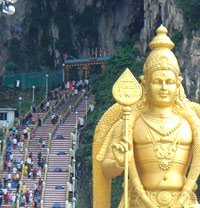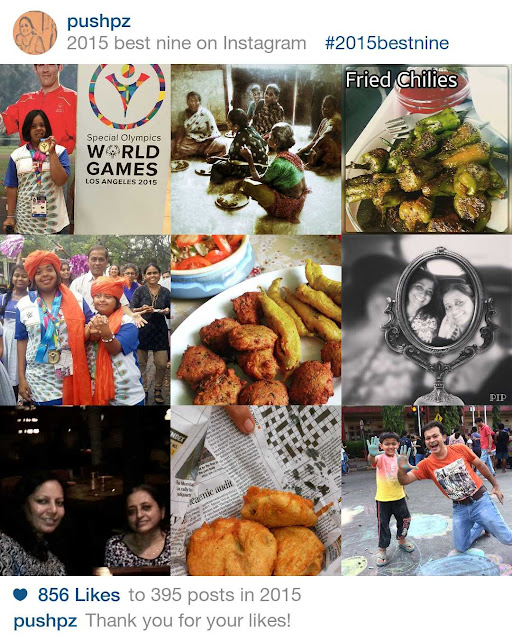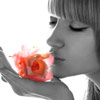Launch of Cadbury Dairy Milk Spready
-
Interesting afternoon at Courtyard by Marriot Mumbai hosted by The FBAI,
Mondelez India and Zeba Kohli..
There was a dramatic launch of Cadbury Cookboo...
Do Visit my very own 'Food' Blog' for delicious meals
Sunday 18 March 2007
Salt-our tasty enemy
We have trained our tongue to eat tasty food. We find food without salt as tasteless and bland. We tend to eat overdose of salt not realizing how much it is harming us. Have we realized that by reducing salt intake we could actually lower average blood pressure, which in turn would help cut heart disease?
Salt in fact performs its ‘flavoring’ by inflaming and irritating taste buds on the tongue. Instead of salt, we can use substitute condiments such as fresh lime, mango, tamarind, cocum, celery or sea weeds. Fresh raw fruits and veggies are also full of appeasing flavors and aromas. They tickle and provoke our taste buds without any need for additional condiments like salt.
When salt gets into our blood stream, it is eliminated with great difficulty. Much of it is thrown out from our body through our skin. Instead of utilizing the energy for important body functions, our vital energy is diverted in throwing out the excess of salt from our body. Ill health is thus caused by placing an extra burden on the body to throw out the salt.
Salt has no nutritional value. It is only a culturally conditioned habit. It is a habit that contributes towards many diseases like hypertension, obesity, kidney stones and even cancer.
We must decide now whether we want a good health or a tasty meal.
Understanding Natural Body Cycle
So finally I am beginning to understand how our body works. It is very important to understand our own body so that we can take care. We ought to know that we are abusing our body by eating wrong food. Our body requires right food to build up its energy. And it also needs time to utilize these fuels. But what do we do?…we are eating continuously, just eating and eating and not giving enough time to our body to digest the food. Our body needs time to balance, rebuild and eliminate constantly and it has its own rhythm.
When we eat, all our food goes to the food reservoir. From noon to 8.00p.m, is the time to eat and put all the food into our food reservoir. This is the time when our body can efficiently break the food into its nutrients. We can eat whatever we like, but we must eat the raw vegetables and sprouts with our food. Salads are very important because they produce enzymes that are necessary for digesting the food. If we do not produce enough enzymes, then the enzymes from other organ rush to help with the digestion.
From 8.00p.m to 4.00 a.m. is the time when our body is doing all the building and repair work. It takes all the nutrients from the food reservoir and distributes to all parts of the body to build new cells and tissues. This is the time to rest and sleep and not eat, because if we eat at these odd hours then we are interfering in absorption and assimilation process and proper digestion of food cannot take place.
From 4.00am to 12noon is the time when our body is getting rid of all its waste products and debris. All that our body does not require is thrown out at this time. That is why it is suggested not to eat anything in the morning except fruits. Fruits are used by our body to cleanse the system. That is why fruits are important because eating only fruits/juices during elimination cycle, gives our body time and energy to clean its toxins.
Living and eating according to these eight hour cycles is the key method to tune in to the natural harmonious rhythm of the body. This is the secret to losing weight, feeling energetic, getting rid of illness and staying fit in the long run.
Wednesday 14 March 2007
Eating the right food
Last Saturday, I attended a nutrition program. We were given a cooking demonstration on cooking food without oil. No oil was used in any cooking. She cooked about 6 dishes in two hours but none contained even a drop of oil. And believe me when I say that she did not use the non-stick pan. She said it was toxic. Instead of oil she was rubbing the tava with onion when roasting the patties and for cooking she was using ground peanuts or coconut. Instead of salt she advised in using rock salt or black salt and instead of sugar, she advised to use gur or dates. She said that we should avoid boiling or frying food, it is best to steam the veggies. She had made tomato puree by steaming the tomatoes and blending them with their skin on.
Following of the dishes that she made during our session:
Tomato curry
Potato patties with ragda in coconut gravy
Halved capsicum was stuffed with boiled and grated potato and steamed
Steamed potato was rolled with spinach leaves and steamed
Moong dhal was soaked and pounded into paste and mixed with spices and steamed and then garnished with curry patta and hing.
For sweet dish, a kheer was made of unpolished rice, which was steamed ad mashed and boiled with jaggery syrup and cocnut milk. Cardamom and nuts were added to it.
There was a stress on using food in its natural form. Our body can get all the nutrients from raw veggies, fruits, nits and sprouts. Rest everything that we eat like fried stuff, biscuits and savories between meals, is extra work for our body. Tinned or canned food is the fragmented food and does not contain all the nutrients since most of them are destroyed during fragmentation process.
A high energy food is the food that provides carbohydrates/glucose and requires little or no digestion and introduces no toxins that would require elimination or extra energy expedition.
Whenever we eat, the new food is added to our common reservoir which has stored nutrients from previous meals. The cells in our body, extract the nutrients from this common reservoir, and convert it into energy and distribute it to different parts of the body. The residue is either eliminated or get stored as fat that you see on your hips or on your stomach.
By eating the correct food, the balance is maintained and our body does not have to over work to maintain the harmony and balance between our intake and the ends of the body. If the food is not right, then the enzymes from other organs such as liver, kidney, etc, have to rush to help with the digestion. As the result lot of energy is wasted in digestion of the food and other organs are not able to perform their own function.
Some of the most important factors for consideration of selecting food for optimal health are that they should be easy to masticate, can be easily digested and absorbed by the body and leaves an alkaline ash after metabolism.
Friday 9 March 2007
transcript of the chat with heart specialist Dr Devi Shetty
Q: What are the five thumb rules for a layman to take care of his heart?
A: 1. Diet - Less of carbohydrate, more of protein, less oil
2. Exercise - Half an hour's walk, at least five days a week; avoid lifts and avoid sitting for a long time
3. Quit smoking
4. Control weight
5. Control blood pressure and sugar
Q: Is eating non-veg food (fish) good for the heart?
A: No
Q: It's still a grave shock to hear that some apparently healthy person gets a cardiac arrest. How do we understand it in perspective?
A: This is called silent attack; that is why we recommend everyone past the age of 30 to undergo routine health checkups.
Q: Are heart diseases hereditary?
A: Yes
Q: What are the ways in which the heart is stressed? What practices do you suggest to de-stress?
A: Change your attitude towards life. Do not look for perfection in everything in life.
Q: Is walking better than jogging or is more intensive exercise required to keep a healthy heart?
A: Walking is better than jogging since jogging leads to early fatigue and injury to joints
Q: You have done so much for the poor and needy. What has inspired you to do so?
A: Mother Theresa, who was my patient.
Q: Can people with low blood pressure suffer heart diseases?A: Extremely rare
Q: Does cholesterol accumulates right from an early age (I'm currently only 22) or do you have to worry about it only after you are above 30 years of age?
A: Cholesterol accumulates from childhood.
Q: How do irregular eating habits affect the heart?
A: You tend to eat junk food when the habits are irregular and your body's enzyme release for digestion gets confused.
Q: How can I control cholesterol content without using medicines?
A: Control diet, walk and eat walnut.
Q: Can yoga prevent heart ailments?
A: Yoga helps.
Q: Which is the best and worst food for the heart?
A: Best food is fruits worst are oil.
Q: Which oil is better - gingili, groundnut, sunflower, saffola, olive?
A: All oils are bad; the so-called best oil company has the largest marketing budget.
Q: What is the routine check up one should go through? Is there any specific test?
A: Routine blood test to ensure sugar, cholesterol is ok. Check BP, Treadmill test after an echo.
Q: How different was it in treating Noor Fatima, the little kid from Pakistan ?
A: It was extremely difficult, Because of the media attention. As far as the medical treatment is concerned, she is like any other child with a complex heart problem.
Q: What are the first aid steps to be taken on a heart attack?
A: Help the person into a sleeping position, put an aspirin tablet under the tongue with a sorbitrate tablet if available, and rush him to a coronary care unit since the maximum casualty takes place within the first hr.
Q: How do you differentiate between pain caused by a heart attack & that caused due to gastric trouble?
A: Extremely difficult without ECG.
Q: What is the main cause of a steep increase in heart problems amongst youngsters? I see people of about 30-40 yrs. of age having heart attacks and serious heart problems.
A: Increased awareness has increased incidents. Also, sedentary lifestyles, smoking, junk food, lack of exercise in a country where people are genetically three times more vulnerable for heart attacks than Europeans and Americans.
Q: Is it possible for a person to have BP outside the normal range of 120 / 80 and yet be perfectly healthy?
A: Yes.
Q: Marriages within close relatives can lead to heart problems for the child, is it true?
A: Yes, co-sanguinity leads to congenital abnormalities & you may not have a software engr. as a child
Q: Many of us have an irregular daily routine and many a times we have to stay late nights in office. Does this affect our heart? What precautions would you recommend?
A: When you are young, nature protects you against all these irregularities. However, as you grow older, respect the biological clock.
Q: Will taking anti-hypertensive drugs cause some other complications (short / long term)?
A: Yes, most drugs have some side effects. However, modern anti-hypertensive drugs are extremely safe.
Q: Will consuming more coffee/tea lead to heart attacks?
A: No.
Q: Are asthma patients more prone to heart disease?
A: No.
Q: How would you define junk food?
A: Fried food like Kentucky , McDonalds, samosas, and even masala dosas.
Q: You mentioned that Indians are three times more vulnerable. What is the reason for this, as Europeans and Americans also eat a lot of junk food?
A: Every race is vulnerable to some disease and unfortunately; Indians are vulnerable for the most expensive disease.
Q: Does consuming bananas help reduce hypertension?
A: No.
Q: Can a person help himself during a heart attack (Because we see a lot of forwarded emails on this)?
A: Yes. Lie down comfortably and put an aspirin tablet of any description under the tongue and ask someone to take you to the nearest coronary care unit without any delay and do not wait for the ambulance since most of the time, the ambulance does not turn up.
Q: Do, in any way, low white blood cells and low haemoglobin count lead to heart problems?
A: No. But it is ideal to have normal haemoglobin level to increase your exercise capacity.
Q: Sometimes, due to the hectic schedule we are not able to exercise. So, does walking while doing daily chores at home or climbing the stairs in the house, work as a substitute for exercise?
A: Certainly. Avoid sitting continuously for more than half an hour and even the act of getting out of the chair and going to another chair and sitting helps a lot.
Q: Is there a relation between heart problems and blood sugar?
A: Yes. Strong relationships since diabetics are more vulnerable to heart attacks than non-diabetics.
Q: What are the things one needs to take care of after a heart operation?
A: Diet, exercise, drugs on time. Control cholesterol, BP, weight.
Q: Are people wkg. on night shifts more vulnerable to heart disease when compared to day shift workers?
A: No.
Q: What are the modern anti-hypertensive drugs?
A: There are hundreds of drugs and your doctor will chose the right combination for your problem, but my suggestion is to avoid the drugs & go for natural ways of controlling BP by walk, diet to reduce weight and changing attitudes towards lifestyles.
Q: Does dispirin or similar headache pills increase the risk of heart attacks?
A: No.
Q: Why is the rate of heart attacks more in men than in women?
A: Nature protects women till the age of 45.
Q: How can one keep the heart in a good condition?
A: Eat a healthy diet, avoid junk food, exercise everyday, do not smoke and, go for a health check up if you are past the age of 30 for at least once in 2 years. And work very hard and enjoy your Life...
Thursday 8 March 2007
Back from my trip to Malaysia
 I am just back from my trip to Bangkok and Malaysia. Taking holidays is a stress buster; I think it is very important to take one regularly.
I went to Kaula Lumpur for few days. It is easy to go around in Malaysia even if you are alone and want to do a bit of sight seeing.
There is a semi glass roof double deck bus with insightful on-board commentary which is perfect for having a delightful experience. This bus covers all major attractions, over 42 major sights and attractions that includes KL towers, Twin towers, Bintang walk, bird park, lake garden, and many shopping places.
The route is covered in 2 hours. But we can hop-on and hop off at any place that we wish to explore and visit any place within 24 hours.
I am just back from my trip to Bangkok and Malaysia. Taking holidays is a stress buster; I think it is very important to take one regularly.
I went to Kaula Lumpur for few days. It is easy to go around in Malaysia even if you are alone and want to do a bit of sight seeing.
There is a semi glass roof double deck bus with insightful on-board commentary which is perfect for having a delightful experience. This bus covers all major attractions, over 42 major sights and attractions that includes KL towers, Twin towers, Bintang walk, bird park, lake garden, and many shopping places.
The route is covered in 2 hours. But we can hop-on and hop off at any place that we wish to explore and visit any place within 24 hours.
 I bought the ticket for 17 dollars (Malaysian) and was able to visit KL and twin towers and also went to china market for shopping. It was easy to recognize the tour stops because of its characteristic highly colorful and visible signage.
On my way to Genting Highland we passed Batu caves. This massive limestone outcrop and its cavernous interior is home to Hindu deities and one will need to climb its 272 steps to fully appreciate the caves.
I bought the ticket for 17 dollars (Malaysian) and was able to visit KL and twin towers and also went to china market for shopping. It was easy to recognize the tour stops because of its characteristic highly colorful and visible signage.
On my way to Genting Highland we passed Batu caves. This massive limestone outcrop and its cavernous interior is home to Hindu deities and one will need to climb its 272 steps to fully appreciate the caves.
Subscribe to:
Posts (Atom)
Featured post
The Year That It Was - 2015
I have poor memory therefore I tend to forget the good and the bad times easily. What is past is forgotten, each day I try my best that my ...

"I shall seize the fate by its throat....

"I shall seize the fate by its throat....It shall certainly not bend nor crush me completely"